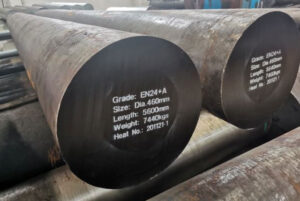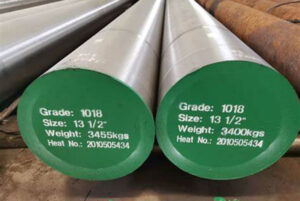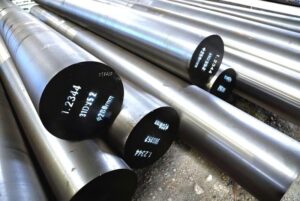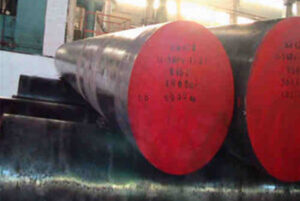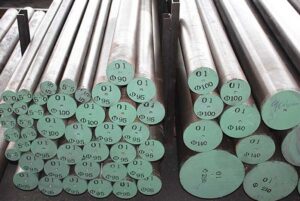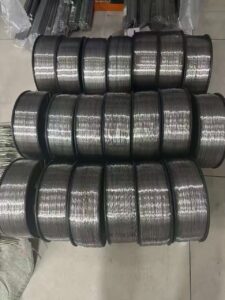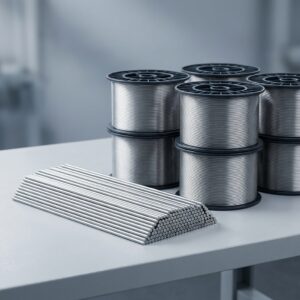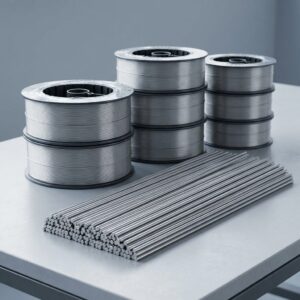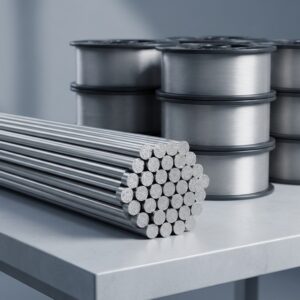In the realm of engineering marvels, where resilience and performance reign supreme, special steels emerge as the champions. Among these champions stands 18CrMo4/1.7243, a versatile alloy steel lauded for its exceptional strength, hardenability, and resistance to wear. But what exactly makes this steel so special? Buckle up, as we delve into the fascinating world of 18CrMo4/1.7243, dissecting its composition, properties, applications, and more.
Composition of 18CrMo4/1.7243
Imagine 18CrMo4/1.7243 as a recipe, with each ingredient playing a crucial role in its final characteristics. Here’s a breakdown of the key players:
| Nguyên tố | Function | Percentage Range |
|---|---|---|
| Carbon (C) | Primary strengthening agent | 0.15 – 0.21 |
| Silicon (Si) | Improves hardenability and deoxidation | Max 0.4 |
| Manganse (Mn) | Strengthens the steel matrix and improves hot working | 0.6 – 0.9 |
| Phốt pho (P) | Unwanted element, kept low to prevent brittleness | Max 0.025 |
| Lưu huỳnh (S) | Another unwanted element, minimized to avoid hot shortness | Max 0.035 |
| Crôm (Cr) | Maintains strength at elevated temperatures and enhances corrosion resistance | 0.9 – 1.2 |
| Molypden (Mo) | Further enhances hardenability and high-temperature strength | 0.15 – 0.25 |
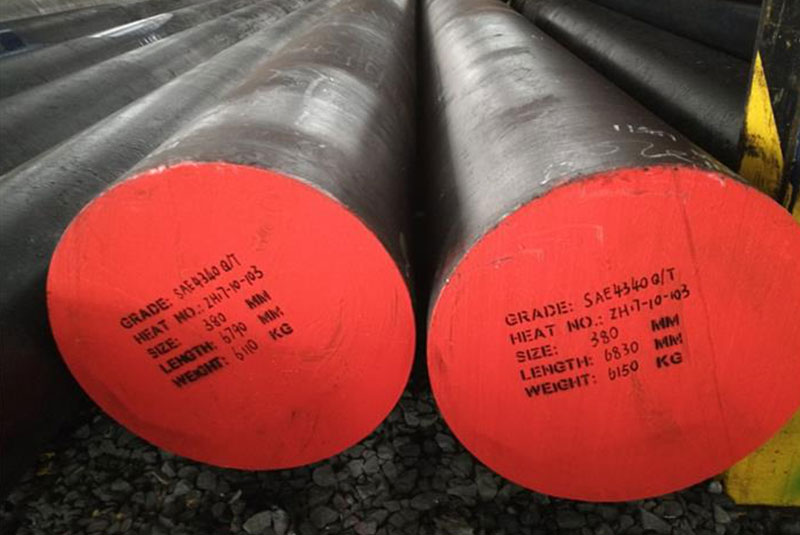
Properties of 18CrMo4/1.7243
Think of the properties of 18CrMo4/1.7243 as the steel’s superpowers. Here’s a glimpse into what makes it stand out:
- High Strength: With a tensile strength reaching up to 1100 MPa (159,500 psi) after quenching and tempering, 18CrMo4/1.7243 can handle significant loads without breaking a sweat. Imagine it as the tireless workhorse in the world of steels.
- Excellent Hardenability: This steel readily absorbs carbon during the carburizing process, forming a hard and wear-resistant outer layer while maintaining a tough inner core. It’s like having a superhero’s tough skin combined with incredible flexibility.
- Good Weldability: While preheating is recommended, 18CrMo4/1.7243 can be welded effectively, making it a versatile choice for complex structures. Think of it as a steel that can seamlessly join forces with other components.
- Moderate Corrosion Resistance: The presence of chromium offers a degree of protection against corrosion, making it suitable for non-corrosive environments or applications with protective coatings.
Applications of 18CrMo4/1.7243
Now that we understand the strengths of 18CrMo4/1.7243, let’s explore where it shines:
- Gears and Shafts: From the intricate gears of a transmission to the powerful shafts driving industrial machinery, 18CrMo4/1.7243’s strength and wear resistance make it a prime candidate. Imagine it as the backbone of these critical components, ensuring smooth operation under demanding conditions.
- Bushings and Bearings: These unsung heroes, responsible for reducing friction and guiding movement, benefit greatly from 18CrMo4/1.7243’s combination of strength and wear resistance. They can withstand high loads and maintain smooth rotations over extended periods.
- Fasteners: Bolts, nuts, and other fasteners exposed to significant stress rely on 18CrMo4/1.7243’s strength to ensure secure connections. Imagine them as the invisible guardians holding everything together, even under immense pressure.
- Construction Machinery: This steel finds its place in various construction equipment components, such as excavator buckets and crane hooks, where its strength and wear resistance are crucial for handling heavy loads and resisting abrasion. Think of it as the underlying muscle that allows construction equipment to perform its heavy-duty tasks.
- Agricultural Implements: From plows and harrows to cultivator shanks, 18CrMo4/1.7243’s strength and wear resistance make it a valuable material for withstanding the rigors of agricultural work. It can endure harsh conditions and abrasive soil, ensuring the longevity of these essential tools.
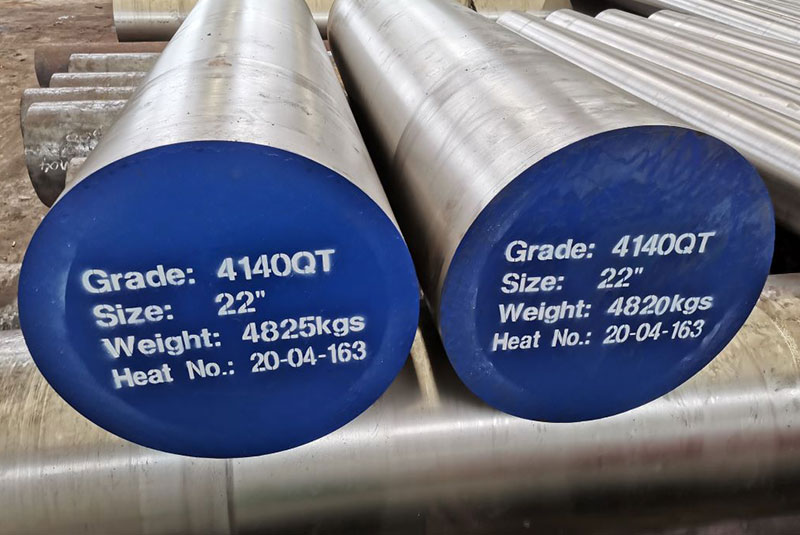
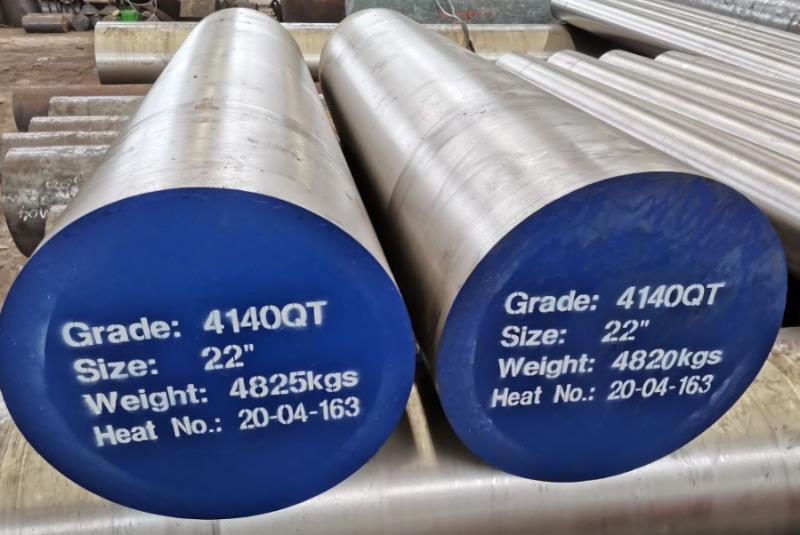
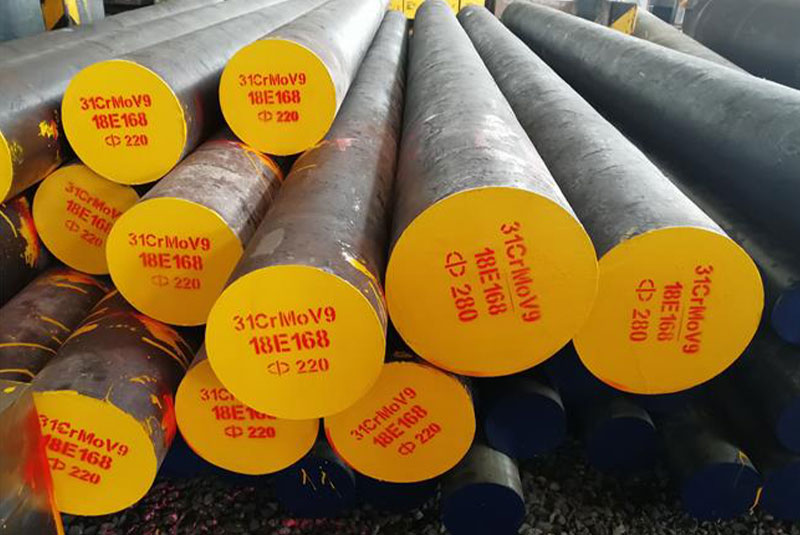
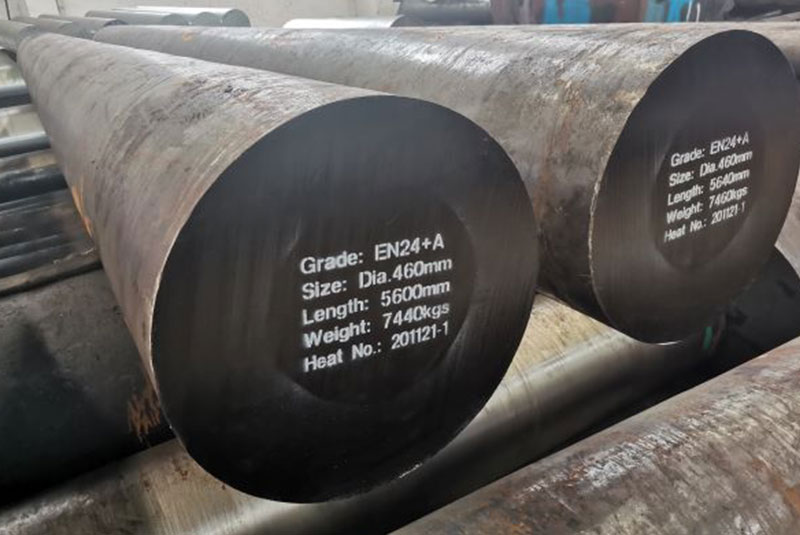

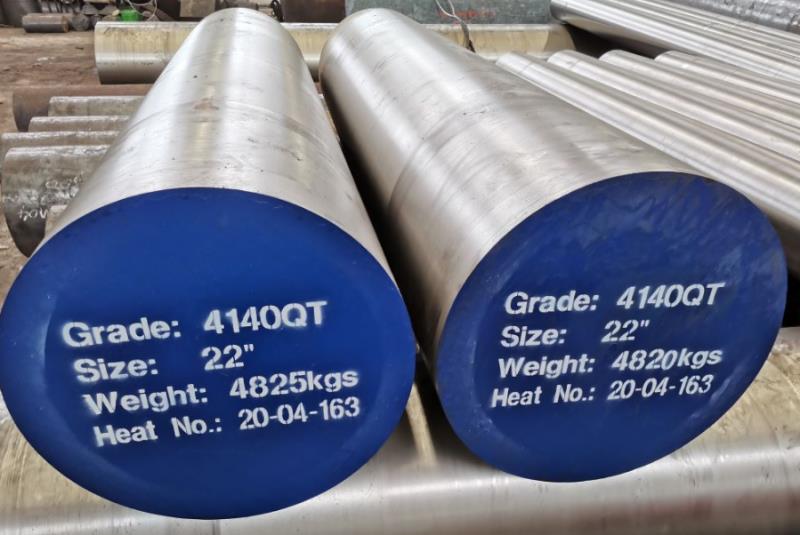
Metal Powders for Additive Manufacturing of 18CrMo4/1.7243
The world of 3D printing has opened exciting possibilities for the use of 18CrMo4/1.7243. Here are some metal powder options specifically formulated for additive manufacturing (AM) of this steel:
- Gas-atomized Powders: These powders are produced by injecting molten metal into a high-pressure inert gas stream, resulting in spherical particles with excellent flowability and packing density. This translates to smoother printing processes and potentially improved mechanical properties in the final product.
Specific Metal Powder Models:
- Höganäs AM 18CrMo4: This gas-atomized powder from Höganäs offers high purity and good printability, making it suitable for a wide range of AM applications.
- APWorks 1.7243: Another gas-atomized option, APWorks 1.7243 boasts excellent flowability and responds well to post-processing techniques like carburizing for enhanced wear resistance.
- SLM Solutions SX 1.7243: This metal powder from SLM Solutions is specifically designed for laser beam melting (LBM) AM processes, known for their high accuracy and detail.
- EOS M 290 CoCrMo: While not strictly 18CrMo4, EOS M 290 CoCrMo is a similar cobalt-chromium-molybdenum alloy that exhibits good strength and wear resistance, making it a viable alternative for some AM applications.
Beyond Gas-Atomized Powders:
- Water-atomized Powders: These powders are produced by atomizing molten metal with a high-pressure water jet. While their morphology might be less ideal for AM compared to gas-atomized powders, they offer a more cost-effective option. However, careful selection and optimization of printing parameters may be necessary.
Specific Metal Powder Models (Water-Atomized):
- AMPA AM CrMo: AMPA offers a water-atomized 18CrMo4 powder specifically designed for AM processes, balancing cost-effectiveness with acceptable printability.
- Höganäs AM Dimit~\textregistered~: This water-atomized powder from Höganäs utilizes a proprietary process to achieve a more spherical morphology, improving printability compared to traditional water-atomized powders.
Binder Jetting Powders:
- Metal Injection Molding (MIM) Powders: These powders are a blend of metal particles and a binder material, enabling the creation of complex shapes through injection molding. Subsequent debinding and sintering processes transform the component into a near-net-shape metal part.
Specific Metal Powder Models (MIM):
- BASF AM 316L: While not strictly 18CrMo4, BASF AM 316L is a 316L stainless steel powder commonly used in MIM processes. It offers a good balance of strength and corrosion resistance, and its properties can be somewhat similar to 18CrMo4/1.7243 in certain applications.
- Höganäs Catamold~\textregistered~: This family of MIM powders from Höganäs includes options specifically designed for steels like 18CrMo4, providing a versatile solution for complex near-net-shape components.
Additional Considerations for Metal Powders:
Choosing the right metal powder for your specific application requires careful consideration of factors like:
- Particle size and distribution: This impacts flowability, packing density, and printability.
- Sphericity of particles: Spherical particles generally offer better flowability and packing density, leading to smoother printing processes.
- Chemical composition: Ensure the powder adheres to the desired 18CrMo4/1.7243 chemistry for optimal properties in the final part.
- Flowability: Powders with good flowability enable consistent material deposition during printing.
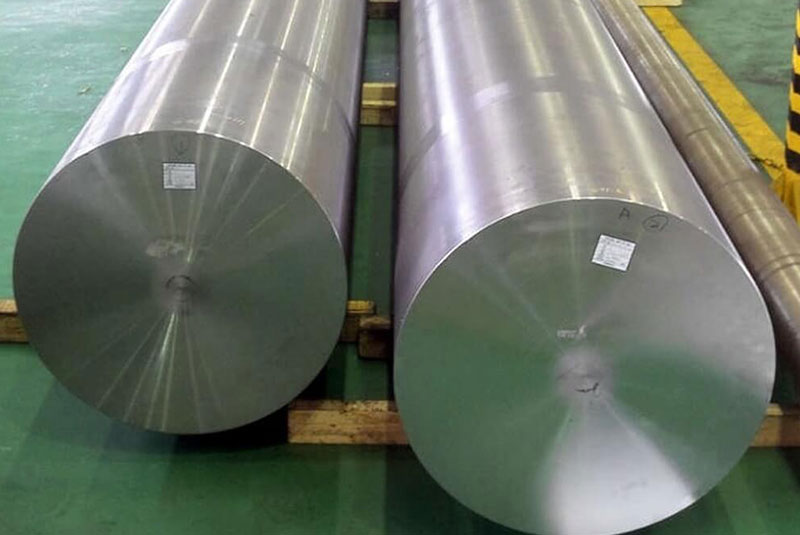
Advantages and Limitations of 18CrMo4/1.7243
Every material has its own set of strengths and weaknesses. Here’s a balanced view of 18CrMo4/1.7243:
Advantages:
- High Strength and Wear Resistance: This steel excels in applications requiring the ability to withstand significant loads and abrasive environments. It’s the go-to choice for components that need to be tough and durable.
- Good Hardenability: The ease with which 18CrMo4/1.7243 absorbs carbon during carburizing allows for a wear-resistant outer layer while maintaining a tough inner core. This versatility makes it suitable for a wider range of applications.
- Moderate Corrosion Resistance: The presence of chromium offers a degree of protection against corrosion, making it a viable option for applications where severe corrosion isn’t the primary concern. For highly corrosive environments, alternative materials with superior corrosion resistance might be necessary.
- Weldability: While preheating is recommended, 18CrMo4/1.7243 can be welded effectively, allowing for the creation of complex structures. This weldability simplifies fabrication processes and facilitates repairs if needed.
- Cost-Effective: Compared to some high-alloy steels, 18CrMo4/1.7243 offers a good balance of properties at a reasonable cost. This makes it an attractive choice for various industrial applications.
Limitations:
- Not Highly Corrosion Resistant: For environments with severe exposure to corrosive elements, such as saltwater or harsh chemicals, 18CrMo4/1.7243 might not be the best choice. Steels with higher chromium content or stainless steels would be better suited for such applications.
- Brittle at Low Temperatures: The strength of 18CrMo4/1.7243 can become compromised at very low temperatures. If your application involves extreme cold, alternative steels with better low-temperature toughness might be necessary.
- Machinability: While machinable, 18CrMo4/1.7243 can be somewhat challenging to machine compared to some lower-strength steels. This can require specialized tooling and potentially slower machining times, impacting production costs.
Choosing the Right Steel for the Job
Selecting the most suitable steel for your specific application hinges on a thorough understanding of the requirements. Here are some key factors to consider when 18CrMo4/1.7243 is in contention:
- Functional Requirements: What primary functions will the steel component perform? Does it need to withstand high loads, resist wear, or operate in a specific temperature range?
- Environmental Conditions: Will the component be exposed to corrosive elements, extreme temperatures, or other harsh environments?
- Machining and Fabrication Needs: How complex is the component’s geometry, and what level of machining ease is required?
- Cost Considerations: While 18CrMo4/1.7243 offers good value, how does its cost compare to alternative materials that might meet your needs?

Câu hỏi thường gặp
Q: How does 18CrMo4/1.7243 compare to other commonly used steels like AISI 4140?
A: Both 18CrMo4/1.7243 and AISI 4140 are chromium-molybdenum alloy steels known for their strength and hardenability. Here’s a breakdown of some key differences:
- Strength: 18CrMo4/1.7243 typically offers slightly higher tensile strength compared to AISI 4140.
- Corrosion Resistance: AISI 4140 generally has slightly better corrosion resistance due to its higher chromium content.
- Machinability: AISI 4140 is typically easier to machine than 18CrMo4/1.7243.
- Cost: 18CrMo4/1.7243 might be slightly more cost-effective than AISI 4140.
The choice between these steels depends on the specific application’s priorities. If high strength and wear resistance are paramount, 18CrMo4/1.7243 might be preferable. However, if machinability or moderate corrosion resistance are more critical, AISI 4140 could be a better fit.
Q: Can 18CrMo4/1.7243 be heat treated?
A: Absolutely! Heat treatment plays a crucial role in unlocking the full potential of 18CrMo4/1.7243. Here are some common heat treatment processes employed for this steel:
- Annealing: This process involves heating the steel to a specific temperature, holding it for a certain time, and then slowly cooling it. Annealing softens the steel, making it easier to machine or form.
- Normalizing: Similar to annealing, but with a faster cooling rate, normalizing results in a slightly harder and stronger microstructure compared to fully annealed steel. This can be beneficial for applications requiring a balance of machinability and improved mechanical properties.
- Quenching and Tempering: This is a two-step process where the steel is rapidly cooled (quenched) from a high temperature, followed by tempering at a lower temperature. Quenching traps carbon in the steel’s microstructure, making it extremely hard but also somewhat brittle. Tempering helps to relieve some of the internal stresses and improve toughness while maintaining good hardness. This process is often used to achieve the desired balance of strength, toughness, and wear resistance in 18CrMo4/1.7243 components.
- Carburizing: This process involves introducing additional carbon to the surface layer of the steel. The carburized component is then typically quenched and tempered to create a wear-resistant outer layer with a tough inner core. This treatment is particularly valuable for components that need to resist wear and abrasion on their surface while maintaining good ductility in the core.
Q: Where can I buy 18CrMo4/1.7243?
Due to the global nature of steel production and distribution, it’s challenging to provide a definitive list of suppliers. However, here are some strategies to help you locate reputable sources for 18CrMo4/1.7243:
- Online Metal Marketplaces: Platforms like Machinist’s Material [invalid URL removed], Xometry, and MetalMiner allow you to search for suppliers based on material type, location, and desired form (bars, plates, etc.).
- Steel Distributors: Many regional steel distributors carry a wide range of alloys, including 18CrMo4/1.7243. Searching online directories or contacting local distributors can help you find potential suppliers in your area.
- Metal Powder Manufacturers: If you’re interested in 18CrMo4/1.7243 metal powder for additive manufacturing, contacting manufacturers like Höganäs, APWorks, SLM Solutions, EOS, AMPA, or BASF directly can provide information on their offerings and distributors.

